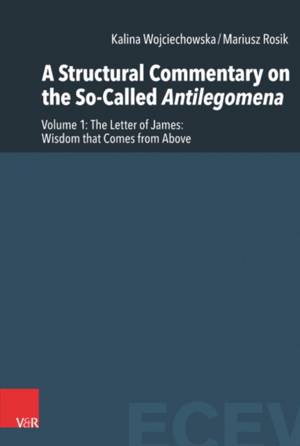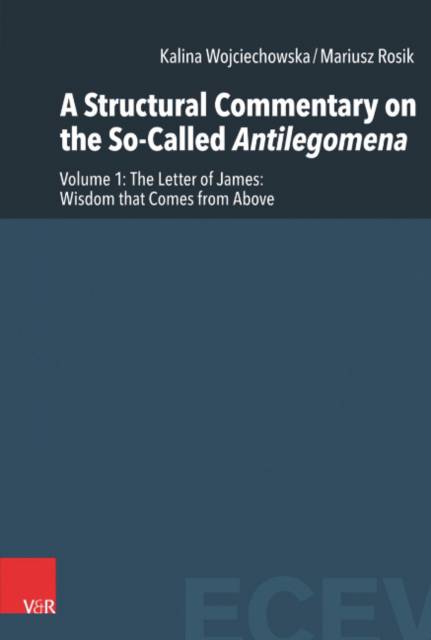
- Afhalen na 1 uur in een winkel met voorraad
- Gratis thuislevering in België vanaf € 30
- Ruim aanbod met 7 miljoen producten
- Afhalen na 1 uur in een winkel met voorraad
- Gratis thuislevering in België vanaf € 30
- Ruim aanbod met 7 miljoen producten
Zoeken
A Structural Commentary on the So-Called Antilegomena
Volume 1. the Letter of James: Wisdom That Comes from Above
Kalina Wojciechowska, Mariusz Rosik
Hardcover | Engels
€ 141,95
+ 283 punten
Uitvoering
Omschrijving
Controversies regarding the authorship of the Letter of James, the date of its composition, its addressees and, when compared to other biblical writings, similarities and differences on lexical, semantic and theological levels generated debates concerning its literary genre, coherence, its associations with other texts as well as intertextual strategies. This structural commentary is part of this discussion. What is emphasized in the commentary is not the issue of justification and the relationship between deeds and faith but the sapiential character of the Letter of James. The new analytical approach has become possible due to an innovative view of the structure of the letter. The authors propose a structure organized around the catalogue of attributes of wisdom enumerated in James 3:17. The second important value of this study is its ecumenical (Catholic-Lutheran) dimension.
Specificaties
Betrokkenen
- Auteur(s):
- Uitgeverij:
Inhoud
- Aantal bladzijden:
- 332
- Taal:
- Engels
Eigenschappen
- Productcode (EAN):
- 9783525573303
- Verschijningsdatum:
- 15/11/2021
- Uitvoering:
- Hardcover
- Formaat:
- Genaaid
- Afmetingen:
- 15 mm x 234 mm
- Gewicht:
- 12505 g

Alleen bij Standaard Boekhandel
+ 283 punten op je klantenkaart van Standaard Boekhandel
Beoordelingen
We publiceren alleen reviews die voldoen aan de voorwaarden voor reviews. Bekijk onze voorwaarden voor reviews.








